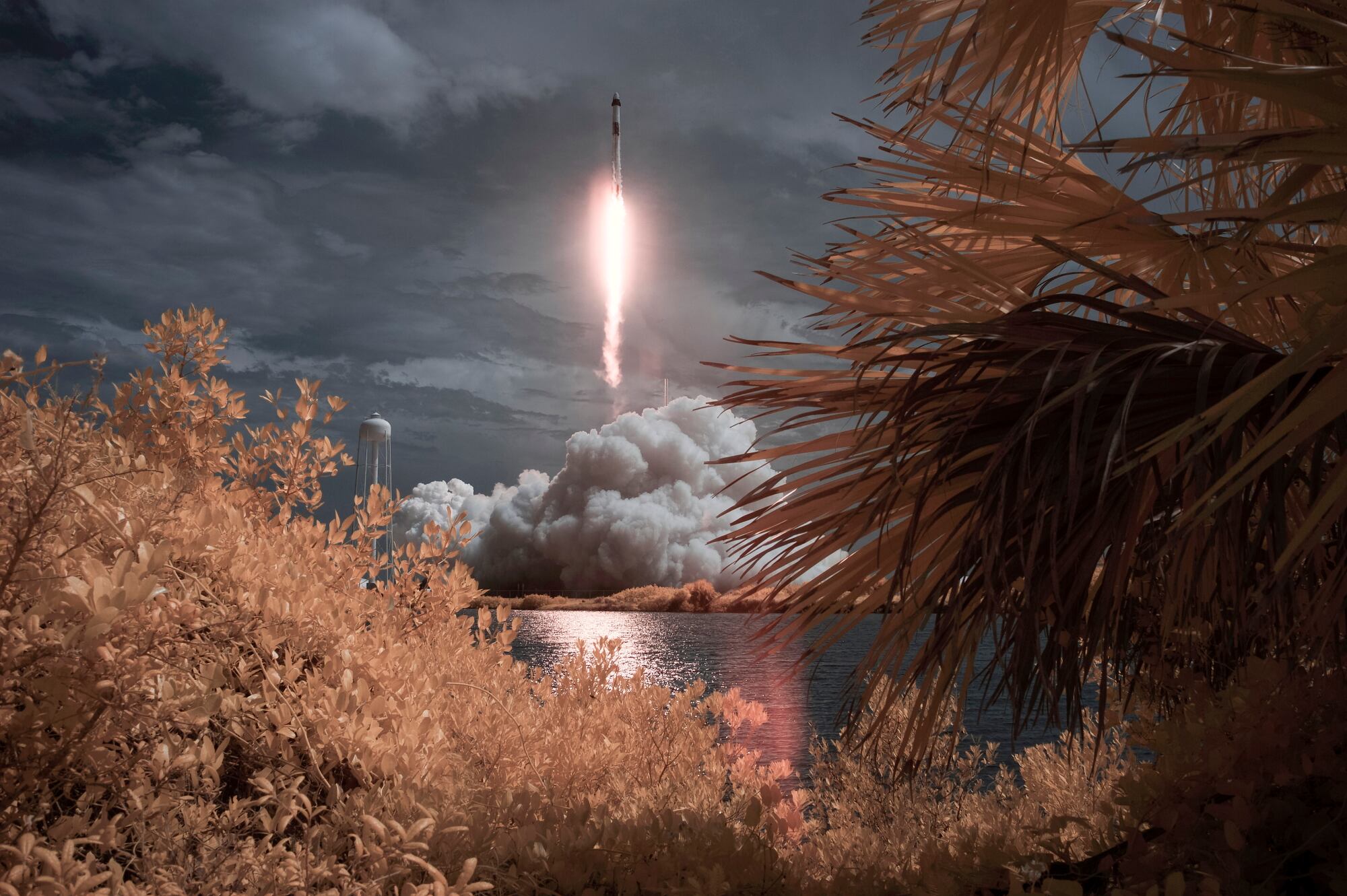COLOGNE, Germany — Germany should jump-start its space technology sector by building a mobile micro-launch platform in the North Sea that could send national security payloads into orbit, according to a proposal by the Federation of German Industries.
The idea picked up steam during late summer, as the trade association published its ideas in a report and initiated talks with government agencies, including the ministries for economic affairs and defense.
The initiative, one of several micro-launch sites planned or under development throughout Europe, is primarily the product of commercial considerations. Having access to a space port on short notice that is primed for small payloads and low-cost operations is a must-have to incentivize companies to stay in the country, as the United States and others seek to lure German space talent abroad, proponents say.
RELATED

But there is also a political dimension. NATO, which last year declared space as an operational domain, wants to expand its earthly footprint on the subject, weighing proposals from France and Germany to base an alliance-sponsored center of excellence there.
“If the government were to get behind this, it would increase the chances for Germany to host the center,” Matthias Wachter, who leads the German industry lobbying group’s defense and space practice, told Defense News.
In addition, he argued, Berlin would be able to offer micro-launch capabilities to NATO and the European Union, thus contributing to the kind of high-tech defense ecosystem that Europeans so desperately seek.
The promising micro-launch companies here are HyImpulse Technologies, based in a small town between Frankfurt and Stuttgart; Isar Aerospace Technologies, located south of Munich; and Rocket Factory, of Augsburg, Bavaria.
The three firms are in the running for a €25 million (U.S. $29 million) competition by the German Ministry for Economic Affairs and Energy. Officials here are looking to the American model of Elon Musk’s SpaceX, hoping to make space-launch services a commercial affair that the government can purchase as needed.
“We are entering uncharted territory with this competition,” Thomas Jarzombek, who spearheads the aerospace startup portfolio at the economic affairs ministry, said in July. “We are banking on competition, private financing and private risk. The government should no longer develop everything on its own, but increasingly buy services from startups.”

The German industry association hopes civilian adoption of the micro-launch concept — for everything from communications to environmental monitoring from space — will open the door to defense applications.
“It’s a great and exciting market,” Wachter said, adding that the biggest beneficiary would be the German military.
A public debate about Germany using space platforms for national security objectives has yet to take place. And if another high-tech defense topic is any guide — the use of drones and artificial intelligence in war — the proposal of militarizing space is fraught with negative connotations that could take years to work through.
The Defence Ministry, meanwhile, is on the fence.
“The department is familiar with the BDI proposal,” a spokesman told Defense News, using the German acronym for the industry group. “It is being evaluated by the economic affairs ministry as the lead agency, in coordination with other departments. The analysis has not yet yielded any results.”
“From the Defence Ministry’s point of view, micro-launchers are suitable for carrying small payloads on orbit,” the spokesman added. “At the same time, it is to be acknowledged that there is currently no military requirement for a space port.”
That attitude would leave France — Germany’s favorite political partner and industrial rival — as the main actor for accessing space within continental Europe. France has a well-established space infrastructure. But with a launch site in its overseas territory of French Guiana in South America, the setup is geared toward the type of heavy-lift, big-effort operations antithetical to the promise of micro-launching.
The German industry group’s space port proposal envisions a launch pad towed by boats out into the farthest tip of Germany’s exclusive economic zone. There, beyond the Doggerbank sandbank, a particularly shallow part of the North Sea, is where industry analysts believe lies the perfect spot to shoot rockets into space, squeezing the spacecraft past Norway’s coastline toward polar or sun-synchronous orbits.
The industry group admitted “a launch platform in Germany is not a technical but rather a political question,” but said “the decision in favor of a German launch pad would represent a strategic investment in line with the country’s aspirations to be a high-tech, progressive industrialized nation.”
Sebastian Sprenger is associate editor for Europe at Defense News, reporting on the state of the defense market in the region, and on U.S.-Europe cooperation and multi-national investments in defense and global security. Previously he served as managing editor for Defense News. He is based in Cologne, Germany.








